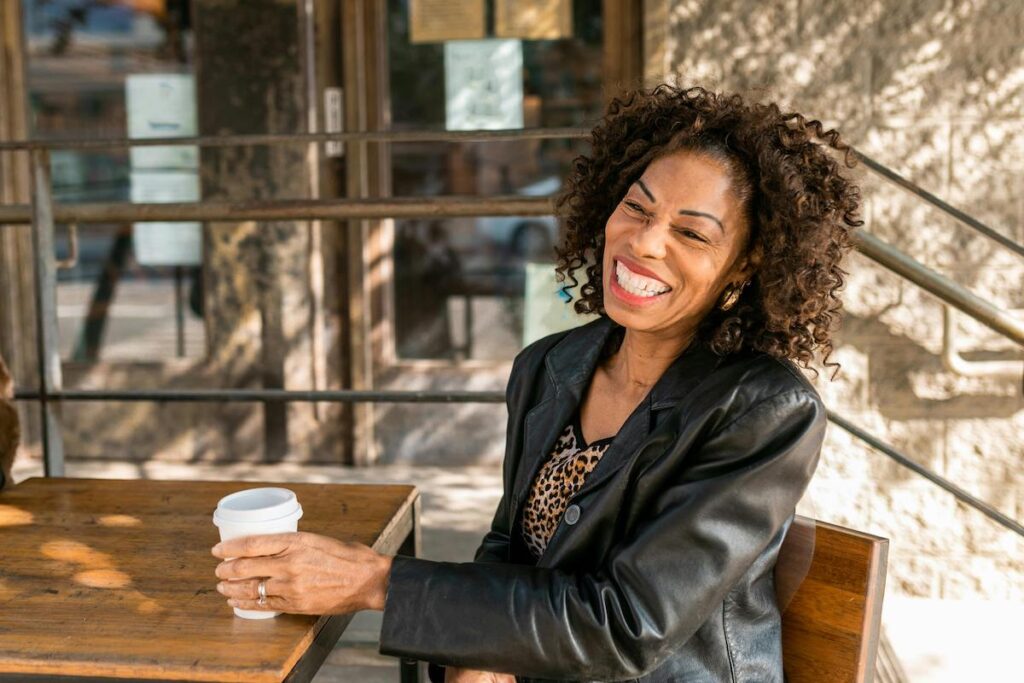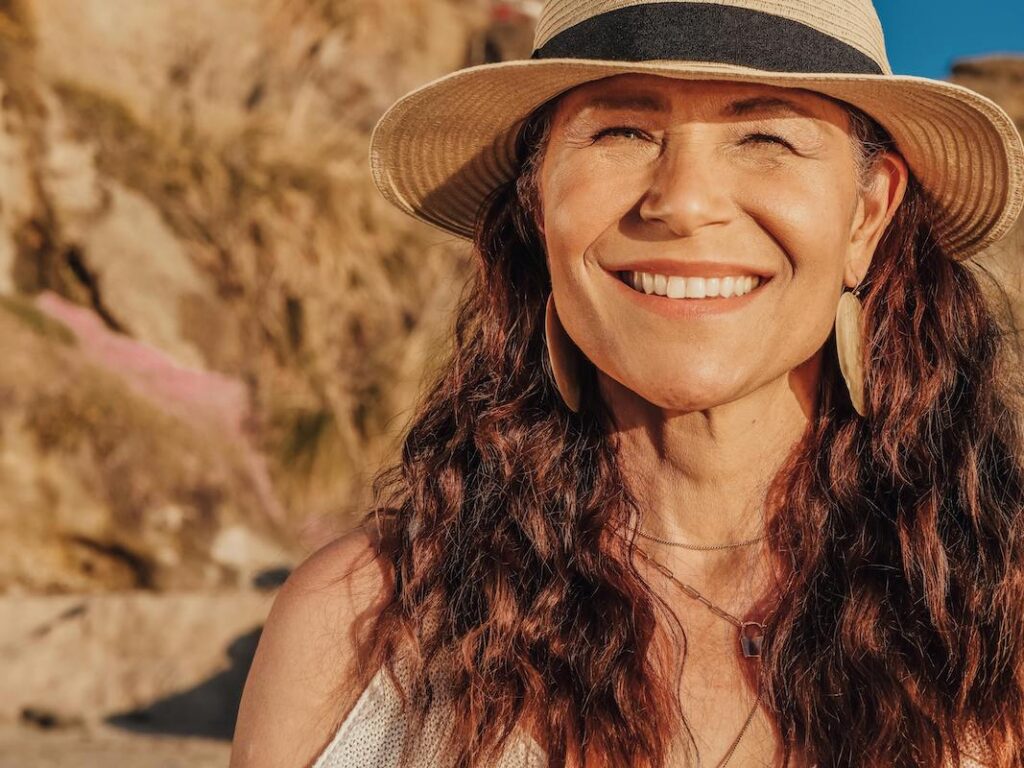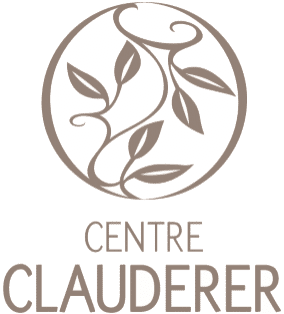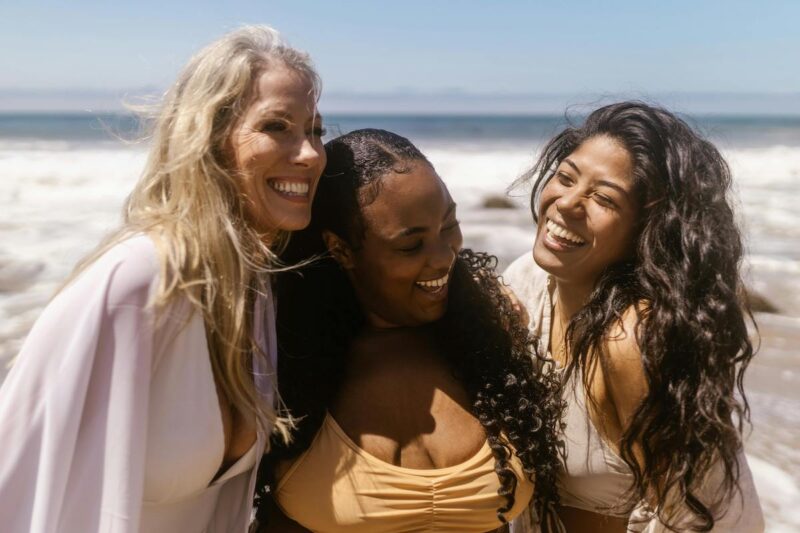Often approached with apprehension, the menopause is an irreversible biological process. Still taboo, the subject is rarely raised in the professional world or even in the social and/or family sphere. Yet the menopause and the phase that precedes it - first the pre-menopause and then the peri-menopause - represent up to 10 years or more of a woman's life. This is no small matter.
If there's one visible sign of the menopause that depresses us, it's the appearance of our hair. It thins, falls out more, becomes drier and lacks shine. It's more fragile and breaks easily. And the fear creeps in insidiously: "if I keep seeing my hair thinning, am I going to go bald at the menopause?
What changes take place during the pre-menopause and what are the possible consequences for women's hair health? What can you do to keep your hair looking beautiful despite the menopause? A summary and solutions from the specialists at Centre Clauderer.
What is the menopause?
The menopause itself is defined simply as the definitive cessation of menstruation after 1 year. The average age is 51, but this age is genetically programmed; having children or not, for example, does not alter the process.
The term pre-menopause is used to describe the period when the first signs of hormonal imbalance begin to appear: the menstrual cycle becomes increasingly irregular and less frequent. Lasting from a few months to several years, this initial period generally begins around the age of 45. This is the transitional phase when the first symptoms appear. The intensity and range of symptoms vary enormously. The most common symptoms are irregular cycles, migraines, hot flushes, mood swings and ...hair loss :
Then comes the period known as the peri-menopause: this covers the last year of irregular cycles and ends 1 year after the final cessation of menstruation. Here's a schematic table summarising the various phases:

Hair and the menopause: what happens?
As we all know, hair is alive. Like many organs, its good health is mainly regulated by our hormones: male sex hormones, androgens, and female sex hormones, oestrogens. We all have androgens and oestrogens, just in different quantities. A hormone, for the record, is a chemical substance that sends messages, instructions, to the various organs. Androgens regulate, among other things, male sexual characteristics such as body hair, voice tone and muscle mass. It is also androgens, via an enzyme called DHT, that determine whether the scalp is predisposed to baldness (or androgenetic alopecia) in both men and women.

And in 20 years' time?
In women, oestrogens regulate the menstrual cycle and sexual characteristics such as breast development, voice and the distribution of adipose tissue. The Vidal medical dictionary states: "oestrogens play an important role in the quality of skin and hair".
The other female hormone, progesterone, is produced by the ovaries and acts as a complement to oestrogen at the time of ovulation.
It's easy to see why women's hair is so sensitive to hormonal fluctuations. During pregnancy, it's oestrogen that protects a woman's body and often helps to give her beautiful hair (but beware of the post-partum effect). Conversely, at the menopause, oestrogens lose ground and their protective power gradually diminishes.
The menopause affects all women, but not all women are affected in the same way: for some, the first symptoms start very early and last for years. Their duration, intensity and variety vary according to genetic programming (the age of menopause is pre-determined) but not only that: health conditions, taking medication, etc. can reinforce certain symptoms. Other women go through this transition without any particular problems.
What are the consequences for hair during the menopause?
Hair loss and density loss
Oestrogens decrease and androgens remain: the hormonal balance deteriorates and this time it is the androgens that take over. In women, before the menopause, hair can have a lifespan of 5 to 7 years; in men, the lifespan is 3 to 5 years. Once oestrogen wears off, the lifespan of women's hair declines. Hair renewal declines, the hair life cycle goes into overdrive and the hair falls out too much, too quickly.
The anti-androgenic role played by female hormones tends to slow down and eventually disappear. On a healthy scalp, with no genetic predisposition or aggravating factors (stress, anaemia, medication, etc.), the hair is likely to be spared overall. However, in the case of genetic predisposition to the alopecising action of androgens, the process will be multiplied tenfold and the risk of baldness will increase. Ladies, rest assured: female pattern baldness is in no way comparable to male pattern baldness. A woman is never completely bald, protected as she has been for several decades by her oestrogens.

Drier hair, loss of hair density...what if it was the menopause?

Dehydration and breakage
Oestrogens (which are made up of lipids and proteins) also play a vital role in hair quality: hydration, thickness, strength. Once the hormonal imbalance begins, hair becomes drier (like the skin, which wrinkles). Weakened and lacking in moisture, it breaks more easily. You get the feeling that your hair has stopped growing.
As a result, the hair becomes thinner and the hair mass decreases. The phenomenon can be particularly insidious in women who have always had abundant hair, as the gradual loss of density goes virtually unnoticed. Often, rather than hair loss in handfuls, you end up with hair on your clothes, washing, the floor, etc. What a stress!
What can you do to protect your hair?
As soon as the first symptoms appear, you can take precautions and plan ahead - a blood test will determine whether you are slightly deficient in minerals (iron) and other essential nutrients (B vitamins, zinc, sulphur, silicium). In this case, a course of hair vitamins will bring renewed vitality. Of course, food supplements are not a substitute for a proper anti-hair loss programme, but they do support the body. Make sure you take enough to meet all your hair's daily needs.
Next, a targeted "regrowth and density" base treatment will combat thinning hair: at Clauderer, we recommend Serum N°6R to slow hair loss and stimulate stronger hair regrowth.
As a result of cell ageing caused by the reduction in oestrogen, hair often loses its natural moisture. The result: less protected by the hydrolipidic film formed by sebum, hair becomes dull, dry and brittle. To remedy this, use creams or balms made with specific moisturising ingredients to revitalise keratin. Treatment is often essential, either as a mask to leave on dry hair before shampooing, or as a rinse-out conditioner to counteract the loss of moisture. Be careful when rinsing: hard water can make hair dull. Cider vinegar or lemon juice are an excellent antidote.

Taking care of your hair: not just at the menopause!
The menopause is synonymous with major upheaval in a woman's life, and is often accompanied by a host of questions. The menopause is often referred to as 'a milestone', symbolising a new stage that is not necessarily easy to get through. In reality, it's more like a "long walk". But there's plenty of time to prepare and, above all, to take a few simple, natural steps to help us get through this new phase with peace of mind, and not just for the sake of our hair!

